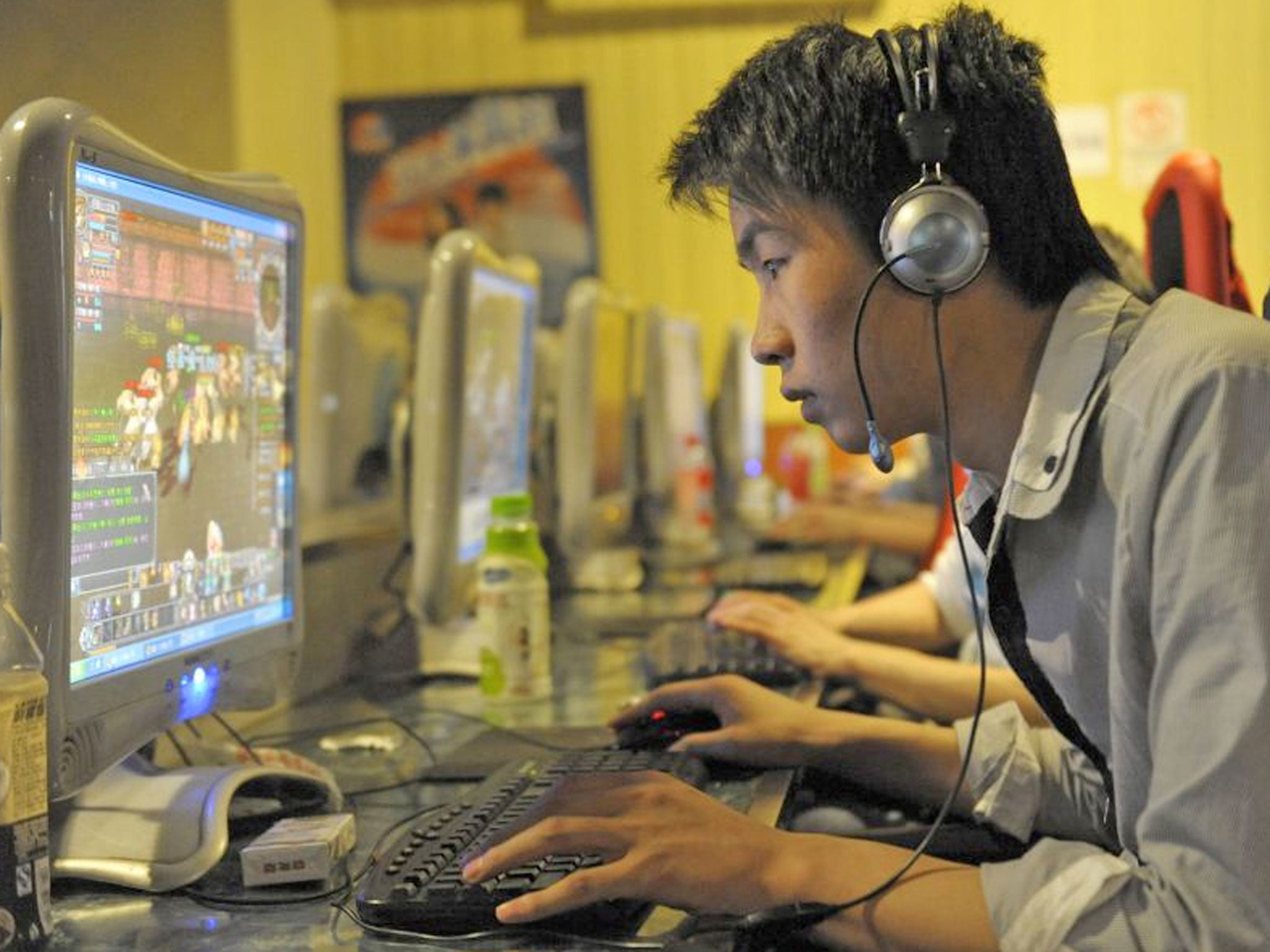Shares surge as China considers lifting ban on sales of games console
Growth in online gaming prompts government to reassess rules designed to protect children

Your support helps us to tell the story
From reproductive rights to climate change to Big Tech, The Independent is on the ground when the story is developing. Whether it's investigating the financials of Elon Musk's pro-Trump PAC or producing our latest documentary, 'The A Word', which shines a light on the American women fighting for reproductive rights, we know how important it is to parse out the facts from the messaging.
At such a critical moment in US history, we need reporters on the ground. Your donation allows us to keep sending journalists to speak to both sides of the story.
The Independent is trusted by Americans across the entire political spectrum. And unlike many other quality news outlets, we choose not to lock Americans out of our reporting and analysis with paywalls. We believe quality journalism should be available to everyone, paid for by those who can afford it.
Your support makes all the difference.China is considering scrapping a 13-year ban on the sale of electronic games consoles, according to local media reports.
Seven government ministries clubbed together in 2000 to force a ban on the sale and import of games consoles, citing fears over potential harm to the physical and cerebral development of children who play them, as well as ideological concerns over the content of some video games. But it appears that the increasing availability of online gaming could now prompt the ban to be scrapped.
“We are reviewing the policy and have conducted some surveys and held discussions with other ministries on the possibility of opening up the games console market,” an anonymous source in China’s Ministry of Culture told the China Daily newspaper, according to a report yesterday.
“However, since the ban was issued by seven ministries more than a decade ago, we will need approval from all parties to lift it,” the source said.
Despite the ban, China has a booming video games market, with around 120 million people playing games online.
Games consoles such as Nintendo’s Wii and Microsoft’s Xbox are available through black-market retailers. Consoles are often made in China – it is the world’s biggest manufacturing base for Xbox – but the consoles are not made available for domestic consumers. However, around 2.34 million tablet computers were sold in China last year, and around 330 mobile phone users have smartphones – both of which can be used to play computer games, rendering a ban on consoles increasingly redundant.
News that the ban could be lifted boosted the share price of Sony, which makes PlayStation, by nearly nine per cent in Tokyo, while Nintendo shares rose more than eight per cent.
“Investors are welcoming the report,” Mitsuo Shimizu, a Tokyo-based analyst at Iwai Cosmo Holdings told Bloomberg. “It would open up a new and huge market for the video-game makers.”
Speculation that the ban might be lifted began in November when PlayStation 3 received a certification of quality from a Chinese safety standards body. But the removal of restrictions on games consoles is unlikely to mean the open sale of games in China, and the software will be subject to strict censorship, just as movies, apps and books already are.
Microsoft introduced its Kinect, a motion-sensing gaming device that can be used with a PC, to the Chinese mainland in October last year, though the company said it would have a primarily educational function. In 2011, the People’s Liberation Army helped develop a first-person ‘shoot-em-up’ video game called “Glorious Mission”, with a powerful propaganda message at its heart. The game was primarily aimed at potential young military recruits.
Yesterday, another official at the Ministry of Culture denied the report. “The ministry is not considering lifting the ban,” the official, who identified himself only as Bai, told Reuters.
Join our commenting forum
Join thought-provoking conversations, follow other Independent readers and see their replies
Comments